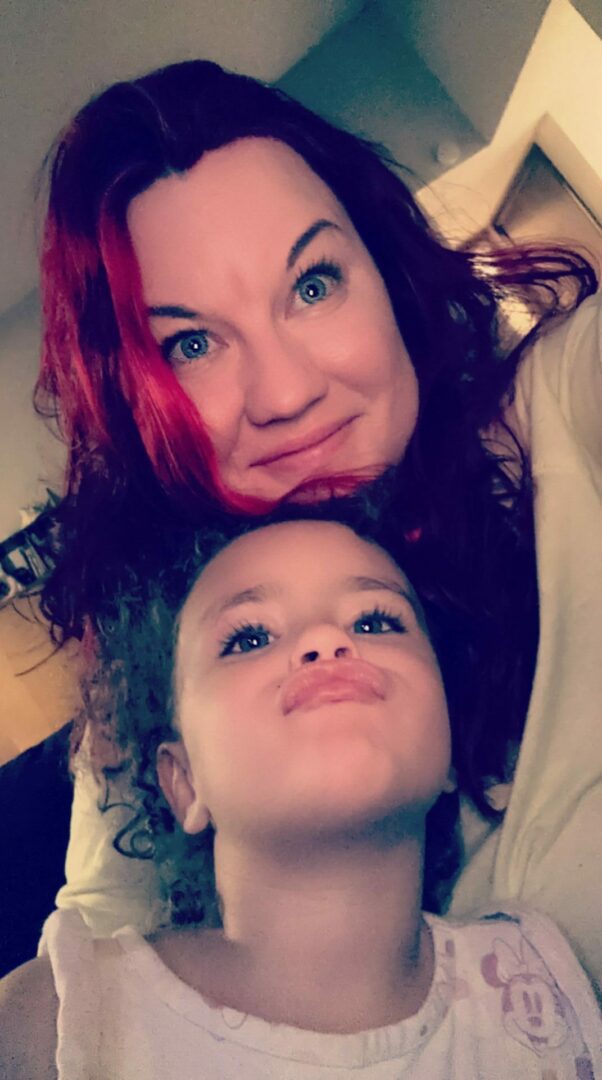Alright – so today we’ve got the honor of introducing you to Robyn Beck. We think you’ll enjoy our conversation, we’ve shared it below.
Robyn, so great to be with you and I think a lot of folks are going to benefit from hearing your story and lessons and wisdom. Imposter Syndrome is something that we know how words to describe, but it’s something that has held people back forever and so we’re really interested to hear about your story and how you overcame imposter syndrome.
When I first considered starting my own firm, I was overwhelmed by self-doubt. Despite being an Enrolled Agent (EA), I didn’t have a traditional degree, and I felt underqualified to run a successful tax accounting, and advisory firm. Everyone around me seemed to have more formal credentials, and I couldn’t shake the feeling that I wasn’t “enough” to be an entrepreneur.
But over time, I realized that imposter syndrome wasn’t something I could wait out or ignore—it was something I had to actively challenge. I kept reminding myself that my experience was just as valuable as any degree. In fact, working at several firms allowed me to learn from some incredibly talented tax accountants, who taught me not just the technical skills but also the mindset that comes with being a successful professional.
What truly helped shift my perspective was realizing that no one has all the answers. Expertise isn’t about knowing everything; it’s about knowing where to find the answers and how to do the research. In many ways, the experience I’d accumulated by working under seasoned professionals gave me insight into areas they themselves weren’t as familiar with. It was a humbling realization—I had the skills, and I could do this.
By working my way up, I was able to understand the value of continuously learning, adapting, and leveraging the knowledge I had gained. In building my own business, I stopped focusing on my perceived lack of credentials and started focusing on the value I could offer—helping clients navigate the complexities of taxes, bookkeeping, cash flow, and business strategy with clarity and confidence.
So, while imposter syndrome didn’t magically disappear, I learned to work alongside it. The more I leaned into my strengths, surrounded myself with mentors, and trusted my own judgment, the more I realized that my unique path had equipped me to do exactly what I set out to do—help other small businesses thrive.

Thanks, so before we move on maybe you can share a bit more about yourself?
I’m the owner of a tax consulting, bookkeeping, cash flow advisory, and small business consulting firm, and my passion for helping small businesses and entrepreneurs is deeply rooted in my own personal journey. I come from a disadvantaged economic background, and I was on my own at 16, learning firsthand how challenging it can be to navigate financial systems, build stability, and achieve long-term success. This experience shaped who I am today and is the driving force behind my work.
As I worked my way up in firms, I discovered a deep passion for working with small business owners, especially those who, like me, have put in a lot of sweat equity to build something from the ground up. I love helping these entrepreneurs find financial clarity and empowering them with the tools they need to succeed. For me, there’s nothing more rewarding than watching someone transform their business and their life through the systems, guidance, and support I provide.
When I started my own firm, I developed a newfound love for setting up systems—not just the numbers, but the creative process that goes into building something that works and flows efficiently. That’s where my creative side comes in. I’m also a visual artist and paint portraits, so I see a lot of parallels between the creative process in art and in business. Both require vision, planning, and the courage to start with a blank canvas and make something real.
What excites me most is the opportunity to help other entrepreneurs take control of their financial futures. I believe that entrepreneurship is a key tool for the working class to reclaim their economic power. It’s not just about creating wealth—it’s about building businesses that are aligned with personal values, that are family-focused, and that can contribute to the strength of communities. Through my work, I want to help small business owners not just survive, but thrive. I want to give them the knowledge and confidence to build something that lasts.
As I continue to grow my firm, I’m expanding into educational workshops to help entrepreneurs understand the financial side of their businesses. I’m passionate about making this knowledge accessible, especially for those who might not have had the chance to learn it otherwise. My goal is to build a community where small business owners feel supported, educated, and empowered to take their businesses to the next level.
Having come from a place of struggle, I understand how powerful it can be to break through financial barriers and find stability. That’s why I’m so committed to helping others do the same. Empowerment through knowledge is at the heart of my brand, and I’m excited to continue offering tools and resources that give entrepreneurs the clarity and confidence to succeed.
Part of clarity is the ability to look at your finances as a complete picture, and I love painting that picture for my clients. I am looking forward to launching my new all inclusive bookkeeping, cash flow advisory, and tax management service bundles in early 2025. I am also offering a promotional rate to clients who onboard for tax season before the end of the year.
Looking back, what do you think were the three qualities, skills, or areas of knowledge that were most impactful in your journey? What advice do you have for folks who are early in their journey in terms of how they can best develop or improve on these?
When I reflect on my entrepreneurial journey, there are three key qualities and skills that I believe have been crucial to my success:
Understanding the Cost of Poor Management
My experience working regular jobs as a teenager and in college gave me a front-row seat to poorly managed work environments. I saw firsthand how disorganization, lack of communication, and inefficiency hurt both employers and employees. This was a pivotal learning experience. From the accounting side, I later confirmed that inefficient systems cost businesses more than just time—they result in lost revenue, frustration, and burnout. Understanding this early on helped me develop a keen sense for spotting inefficiencies and correcting them.
Advice: If you’re just starting out, pay attention to the work environments around you, even if they’re not your own business. Learn what works and what doesn’t. These lessons are priceless and will shape your approach to managing your own business in the future.
Independence and Initiative
I’ve always been wildly independent, and I thrive when given the freedom to take initiative. Whether it’s solving problems, researching, or pushing a project forward, I’ve never been afraid to step up and take action. This is a quality I’ve had to nurture over the years, and it’s been instrumental in running my own firm. As an entrepreneur, you can’t wait around for others to make decisions or move things along. The ability to make choices, even when the outcome is uncertain, is what keeps you progressing.
Advice: If you’re early in your journey, start taking small initiatives in whatever you’re doing. It could be in a side hustle, your current job, or volunteering. Make decisions, solve problems, and be proactive. Over time, this independence will build your confidence and help you make faster, smarter choices as a business owner.
Problem-Solving and Developing Systems
One of my greatest strengths is my love for solving puzzles and analyzing seemingly unrelated things for connections. This ability has allowed me to approach challenges in business with a fresh perspective. It’s also fueled my passion for developing systems. I thrive when I can take complex problems, break them down into manageable parts, and create organized, efficient solutions. Being autistic has enhanced this skill, as it’s often given me a different way of processing information and finding patterns that others may overlook.
Advice: If you’re starting out and want to improve your problem-solving skills, embrace curiosity. Don’t be afraid to dig deeper and ask questions—especially the “why” behind things. Look for patterns and think about how you can make systems more efficient. The more you practice solving problems, the better you’ll become at navigating the complexities of entrepreneurship
As we end our chat, is there a book you can leave people with that’s been meaningful to you and your development?
One of the most valuable lessons I’ve learned in both my personal and professional journey is the importance of intentionally exposing myself to people who think differently than I do. It’s easy to surround yourself with people who share your views, but it’s through actively listening to those with different experiences, ideas, and perspectives that I’ve grown the most. Challenging my own thinking and being open to new ways of seeing things has helped me become a more adaptable, insightful entrepreneur—and it’s something I actively encourage in others. It’s this openness that leads to real innovation and growth.
Not everyone is good at everything, and that’s okay. In fact, it’s one of the reasons why collaboration is so important. No one person can be an expert in every area, and trying to do it all often leads to burnout or suboptimal results. By recognizing our strengths and acknowledging our weaknesses, we can lean on others who complement our skills. Great things happen when people come together, each contributing their unique expertise toward a shared goal. For me, collaboration isn’t just about getting the work done—it’s about learning from others, growing together, and building something stronger than what any one individual could create alone.
Everyone is operating within the vacuum of their own lives. We all see the world through the lens of our own experiences, beliefs, and challenges. It’s easy to forget this when we interact with others, but recognizing that everyone’s actions and reactions are shaped by their unique circumstances is critical. Whether it’s in business or personal relationships, understanding this simple truth helps foster empathy and patience. We all have our own struggles and motivations, and being mindful of this can help us approach situations with more compassion and openness to collaboration.
Contact Info:
- Website: https://opalbusinessservices.com
- Instagram: https://instagram.com/opal.business.services
- Facebook: https://www.facebook.com/opal.business
- Other: https://mailchi.mp/13a967919aef/newsletter-signup
so if you or someone you know deserves recognition please let us know here.




